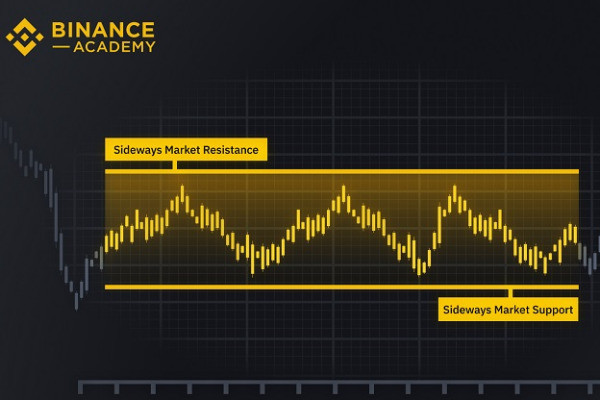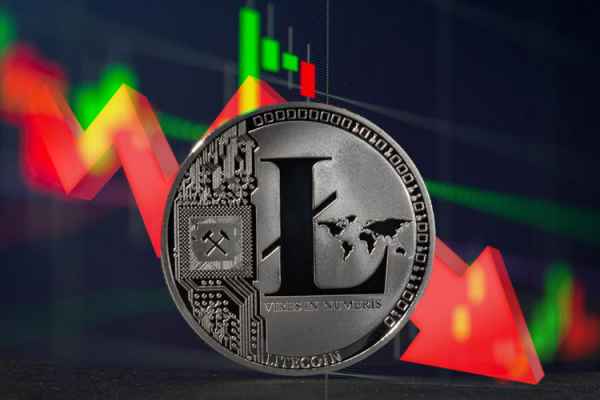The risk of money laundering and other criminal activities still haunts the crypto market to this day. This is why AML and KYC hold significant roles in cryptocurrency.
Money laundering is one of the most critical issues in the financial world, and it's even more significant regarding cryptocurrency. Apart from being a Decentralized Finance (DeFi), cryptocurrency is also highly volatile. Even the largest crypto, Bitcoin, has experienced a massive drop from $19,783 in December 2017 to only $3,400 in 2018, reaching $20,000 in 2020.
Such dramatic fluctuations, faster transactions, and little regulation make the cryptocurrency sector vulnerable to criminal practices such as money laundering and terrorist funding. According to Chainalaysis, 2019 alone saw around $2.8 billion laundered through crypto exchanges, compared to $1 billion in 2018.
By implementing AML and KYC measures, organizations aim to safeguard operations, maintain regulatory compliance, and contribute to the global effort against financial crimes. But what are AML and KYC exactly?
- AML is the set of laws and regulations that aim to prevent criminals from concealing unlawfully acquired funds as lawful income.
- KYC, on the other hand, is a compulsory procedure that involves identifying and validating the client's identity during the account opening process and at regular intervals thereafter.
Now, crypto exchanges are required to apply both of them to be considered safe and reliable. To understand further about the practice, continue to read below.
Contents
Defining AML
Anti-Money Laundering (AML) refers to procedures and legal regulations to identify and prevent companies from profiting from illegal activities, including trading illegal goods, evading tax, manipulating markets, and money laundering. In other words, the regulation aims to prevent the global spread of these activities.
Historically speaking, efforts to combat money laundering, in general, have started in the US since 1970 with the Bank Secrecy Act, which requires banks to actively cooperate with federal authorities in detecting and reporting money laundering. Several other regulations followed the initiative. Still, it was not until 2019 that the Commodity Futures Trading Commission (CFTC), the Securities and Exchange Commission (SEC), and the Financial Crimes Enforcement Network (FinCEN) declared crypto exchanges as Money Service Businesses (MCBs). It makes them subject to AML and KYC legislation under the Bank Secrecy Act.
As the crypto industry evolves, many hackers can harness technology to launder money and cover their tracks virtually. As a result, various criminal activities are also entering a new era, especially on crypto gambling websites, money laundering crypto 'mixer' platforms, and exchanges. This is why so many regulatory bodies worldwide have mandated financial institutions within their region to conduct due diligence on their customers and report suspicious customers and transactions.
So, What Is KYC?
Know Your Customer (KYC) is the initial customer due diligence discussed in AML processes. As crypto exchanges and wallets become more like financial institutions, many regulatory bodies require them to use the KYC procedure in their AML programs.
When a financial institution accepts a new customer, it would have to perform the KYC procedures to identify and verify if the customers are truthful about who they are and what kind of business they're in. This stage allows companies to take a risk-based approach to AML so they know who their clients are and what level of money laundering risk they have.
Usually, the firm uses specialized KYC software to help them manage the sorting and verification process. The software can automatically prioritize high-risk customers based on personal information to reduce human error and false positives.
Furthermore, the KYC process involves collecting the customer's Personal Identifiable Information (PII), which includes full name, date of birth, and address. The company must verify this information by checking their official government-issued documentation, such as passport, driver's license, resident permit, or other equally reliable documents. Also, the customer should be verified against officials highlighting Politically Exposed Persons (PEP) and anyone with Sanctions against them. This way, the company can better understand the risk in each client regarding money laundering and other financial crimes.
Simply put, AML refers to various regulatory processes financial institutions should undertake. In contrast, KYC is a part of AML that involves the firms verifying their customers' identities. Therefore, KYC and AML are highly related but not the same. Financial institutions can use KYC to enhance their compliance with the AML program more personalized based on the business's unique needs.
AML and KYC in Practice
These days, it has become a necessity for crypto exchanges to follow the AML legislation. It highly matters to protect against financial crime and to stay compliant with the current regulations. Not only that but following the program will also increase the company's reputation among clients. While it may take longer and higher costs to perform the procedures, it should be done to ensure the business' safety.
In the US, the regulation is governed by FinCEN's 2011 Money Service Business Final Rule, which amends the Banking Secrecy Act. The rule applies to any financial institution classed as an MCB, including crypto exchanges (crypto-to-crypto and fiat-to-crypto ones). By including both types of crypto exchanges, the regulator covers a more extensive reach of the whole crypto businesses, including crypto ATMs, mixers, dApps that sell crypto, ICO issuers, mining pool operators, custodial wallets, and crypto payment processors. Not only that, but the rule also applies to peer-to-peer trading platforms like LocalBitcoins and Stablecoins.
Apart from that, FinCEN also includes all cryptocurrencies as subject to the AML program. All crypto exchanges must carry out KYC and follow effective AML programs, regardless of the currencies they support. AML programs automatically apply to any transaction over $10,000 within the country. In other words, the company must report any suspicious activity and file Currency Transaction Reports (CTR) for those transactions.
Meanwhile, in the EU, the legislation is covered in the AMLD5. Unlike the US, which includes all crypto businesses, in the EU, the rules may differ from one fiat-to-crypto exchange to another. All exchanges enabling customers to exchange from fiat currency to crypto must implement KYC. However, exchanges that only deal with crypto are not.
There's also an international standard for AML programs outside the US and EU. The Financial Action Task Force (FATF) was founded in 1989 to help combat international money laundering and terror funding. Although the rules are technically not binding to its members, the FATF Guidance is currently used by 37 countries.
The Importance of AML and KYC for Crypto Exchanges
- It Shows Transparency and Builds Customers' Trust
Many investors are probably aware of the high risk in crypto-related businesses. As cryptocurrencies have a history of hacks and scams, new customers will find it harder to believe they are safe to invest in. Therefore, they would surely look for an exchange they can trust and rely on to ensure their coins are in the right hands. By implementing KYC procedures, exchanges can prove their worthiness to new clients. It shows that the company cares about who is using its services and whether they are against money laundering practices or not. - It Lowers the Risk and Protects the Company
Not only for attracting new clients but performing the KYC procedures is also beneficial for the company. Without the legislation, firms are exposed to various illegal activities such as tax fraud, corruption, terrorist funding, etc. Once they accept a suspicious user into their system, they give them full access to hacks, scams, and phishing. That is why they need a mechanism to protect them from those criminals, and KYC is the answer. - It Helps Stabilizing the Crypto Market
Money laundering practices harm investors, exchanges, and the crypto market. AML programs are becoming increasingly significant to show that exchanges are legitimate entities due to a huge mistrust in the industry resulting from those activities. By understanding the verification process and the protection mechanism that the firm uses, customers will be easier to convince and, thus, trust the exchange. As a result, this will also affect the whole crypto market, bringing peace and stability to the market dynamics. - It Keeps Exchanges Compliant
It's important to understand that the sanction for non-compliant exchanges is hefty. Take the US as an instance. The Treasury Department's Office of Foreign Assets Control (OFAC) considers non-compliance a serious threat to national security because it invites money laundering, which can damage the country's economy and enhance criminal activity. Because of this, the sanctions are grave. Non-compliant entities can be charged with criminal fines of up to $20 million, prison sentences of up to 30 years, and civil penalties of up to $65,000 per violation. Therefore, by following the KYC and AML program, crypto exchanges can save themselves from such heavy charges.
The Challenges of KYC
Although it's highly necessary and beneficial for firms to follow KYC programs, it's also worth noting that KYC will present a set of challenges ahead, such as:
- Traditional KYC is Costly
More regulation means more budgets are needed. The firm should pay to register with regulatory bodies and set up budgets to pay for verification processes and larger compliance teams. That being said, traditional KYC procedures are extremely expensive. Firms must send their customers' documentation to third-party verifiers and they must cover the expenses. Other than that, crypto exchanges should pay more compliance staff to ensure ongoing monitoring. Remember that it isn't a one-time event but an ongoing mechanism they should continually do. Recruiting more staff also means paying more salaries, increasing the already piling costs. - Manual KYC Causes Friction in Onboarding
KYC procedures differ for each firm, and the documents are not transferable between organizations. So that means users must do the procedure for every exchange they use. That is already time-consuming, and the waiting time for each manual verification is quite lengthy – up to 30 days. As a result, customers may become more reluctant to register with firms that use KYC procedures. - Privacy and Security Issues
KYC procedures typically require clients to submit their vital documents that contain a lot of sensitive data. With such a huge amount of information, there's a risk of hackers. Even some big exchanges are not completely safe from hacks and cyber-attacks, so it can be a great challenge for crypto exchanges.
The Bottom Line
In conclusion, we can see a huge importance and urgency for crypto exchanges to follow AML programs and use KYC procedures in their system. Not only can it help them prove their trustworthiness to new clients, but it can also protect them from criminal activities such as money laundering and fraud. It can be a great advantage for them even today. There is still a bunch of crypto exchanges that haven't followed these procedures.
However, we must acknowledge that some challenges come with AML and KYC. It's important to have a well-balanced combination of compliance staff and technology to support the program's effectiveness. In practice, AML programs can be expensive and impractical for smaller firms, but it is worth the effort and long-term benefit.

 Dedicated FREE FOREX VPS
Dedicated FREE FOREX VPS Free FOREX Virtual Private Server
Free FOREX Virtual Private Server MT4 Demo Contest, Get $500
MT4 Demo Contest, Get $500 Sign Up for an Account, Claim 60% Deposit Bonus
Sign Up for an Account, Claim 60% Deposit Bonus Free MT4/MT5 VPS 2024
Free MT4/MT5 VPS 2024 Send E-mail and Get Free Merchandise
Send E-mail and Get Free Merchandise $1K Refer a Friend Bonus for Pepperstone Pro clients
$1K Refer a Friend Bonus for Pepperstone Pro clients Maximize Your Earnings with 100% Deposit bonus
Maximize Your Earnings with 100% Deposit bonus Trade to Win, $5,000 Monthly Demo Contest
Trade to Win, $5,000 Monthly Demo Contest Claim 30% + 15% Deposit Bonus from LiteFinance
Claim 30% + 15% Deposit Bonus from LiteFinance






 Bitcoin
Bitcoin Ethereum
Ethereum Tether
Tether BNB
BNB Solana
Solana USDC
USDC XRP
XRP Dogecoin
Dogecoin Toncoin
Toncoin Cardano
Cardano